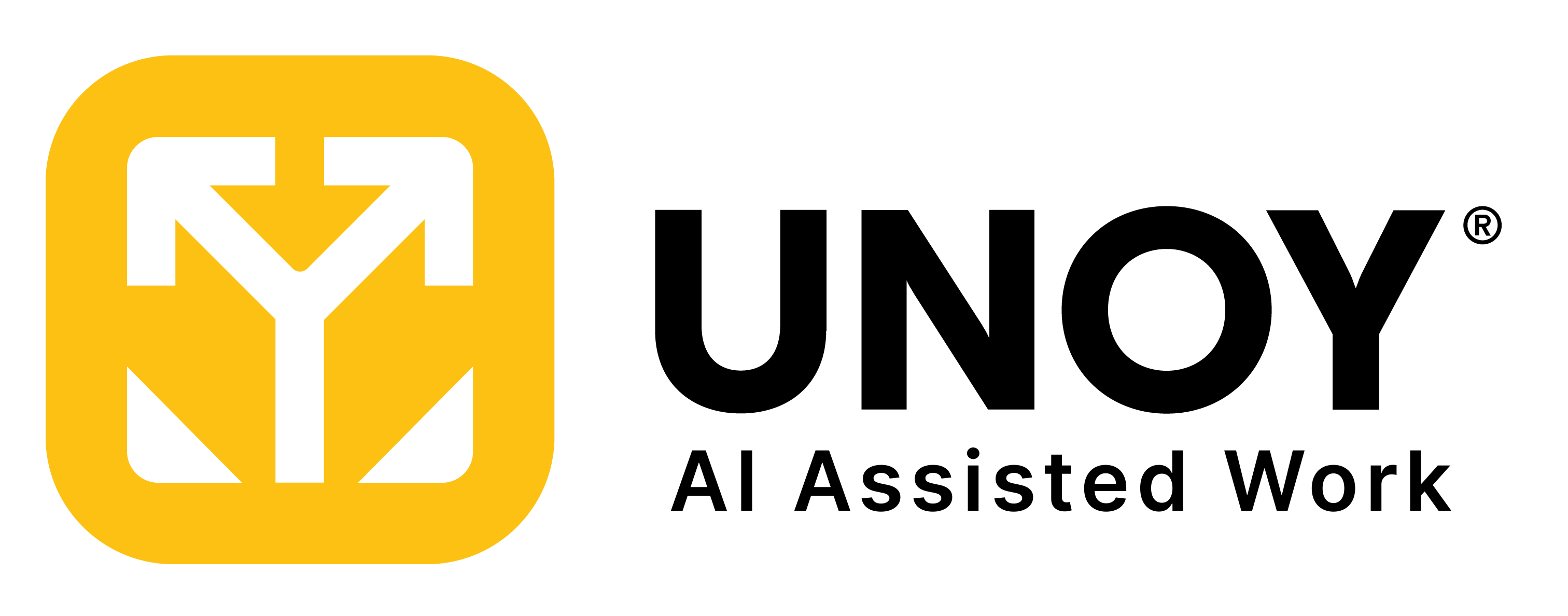Transformation der Unternehmensführung
Künstliche Intelligenz (KI) ist nicht länger ein futuristisches Konzept, sondern eine entscheidende Ressource für die moderne Unternehmensführung. Für CEOs ist die Integration von KI-Lösungen ein entscheidender Faktor, der es Unternehmen ermöglicht, die betriebliche Effizienz zu steigern, verwertbare Erkenntnisse zu gewinnen und strategische Entscheidungen zu treffen. Von der Automatisierung sich wiederholender Aufgaben bis hin zur Vorhersage von Markttrends - KI versetzt Führungskräfte in die Lage, Herausforderungen zu meistern und Chancen mit Präzision und Zuversicht zu ergreifen. Dieser Artikel befasst sich mit dem transformativen Potenzial von KI für CEOs und gibt praktische Ratschläge zur Nutzung dieser Technologien für den langfristigen Erfolg.
Wenn CEOs verstehen, wie KI funktioniert, und die richtigen Werkzeuge einsetzen, können sie ungeahnte Möglichkeiten für Wachstum und Innovation erschließen. Erfahren Sie, wie Top-Unternehmen mit KI erfolgreich sind.
Was sind KI-Lösungen für CEOs?
KI-Lösungen umfassen eine breite Palette von Technologien, die Einblicke gewähren, Prozesse automatisieren und die Entscheidungsfindung unterstützen. Diese Tools nutzen fortschrittliche Techniken wie maschinelles Lernen, natürliche Sprachverarbeitung (NLP) und prädiktive Analysen, um operative und strategische Herausforderungen zu bewältigen. Im Gegensatz zu herkömmlicher Software passen sich KI-Tools kontinuierlich an und lernen aus Interaktionen, wodurch sie mit der Zeit immer effektiver werden.
Ein KI-gestütztes Finanz-Dashboard kann zum Beispiel Echtzeitdaten analysieren, Risiken erkennen und umsetzbare Strategien vorschlagen. Diese Systeme erstellen nicht nur Berichte, sondern liefern aktiv Erkenntnisse, die Zeit sparen und Führungskräften helfen, datengestützte Entscheidungen zu treffen. Beispiele für solche Lösungen finden Sie in Salesforce Einstein, einem führenden KI-Tool für Führungskräfte.
Warum KI für CEOs unverzichtbar ist
In der datengesteuerten Wirtschaft von heute ist die Fähigkeit, schnelle und fundierte Entscheidungen zu treffen, von entscheidender Bedeutung. KI-Lösungen ermöglichen es CEOs, sich auf Aufgaben mit hoher Priorität zu konzentrieren, indem sie Routineprozesse automatisieren und aussagekräftige Erkenntnisse aus komplexen Datensätzen gewinnen. Diese Tools sind in Branchen, in denen Geschwindigkeit, Genauigkeit und Anpassungsfähigkeit über den Erfolg entscheiden, unerlässlich.
Stellen Sie sich einen CEO vor, der einen globalen Betrieb beaufsichtigt. KI-Lösungen können das Lieferkettenmanagement durch Vorhersage von Verspätungen, Optimierung von Routen und Analyse von Markttrends optimieren. In einem kundenorientierten Unternehmen können KI-Tools wie Chatbots oder Empfehlungsmaschinen die Kundenzufriedenheit steigern und gleichzeitig den Umsatz erhöhen. Weitere Informationen darüber, wie KI das Kundenerlebnis umgestaltet, finden Sie in Gartners AI Insights.
Die wichtigsten Vorteile von AI-Lösungen für CEOs
1. Automatisierung und Rationalisierung von Arbeitsabläufen
Eine der größten Stärken von KI ist die Automatisierung sich wiederholender Aufgaben, die Zeit spart und menschliche Fehler reduziert. Durch den Einsatz von KI in administrativen und operativen Arbeitsabläufen können sich CEOs auf strategische Ziele konzentrieren.
- Automatisierte Berichterstattung: KI-Tools können aus mehreren Datenquellen Berichte erstellen, die klare Visualisierungen und umsetzbare Erkenntnisse liefern. Tools wie Microsoft Power BI vereinfachen beispielsweise die Datenanalyse für Führungskräfte.
- Terminplanung: KI-Assistenten wie Google Assistant können Meetings über Zeitzonen hinweg effizient koordinieren und so Terminkonflikte vermeiden.
- Priorisierung von Aufgaben: Durch die Analyse von Fristen und Prioritäten kann die KI die optimale Reihenfolge der Aufgaben empfehlen und so sicherstellen, dass wichtige Ziele rechtzeitig erreicht werden.
2. Verbesserte datengestützte Entscheidungsfindung
Mithilfe von KI-Tools können CEOs umsetzbare Erkenntnisse aus riesigen Datensätzen gewinnen. Diese Erkenntnisse ermöglichen eine fundierte, strategische Entscheidungsfindung auf der Grundlage von Echtzeitinformationen.
So kann die prädiktive Analytik beispielsweise die Marktnachfrage vorhersagen und CEOs dabei helfen, Ressourcen effizient zuzuweisen. Tools wie IBM Watson sind darauf spezialisiert, Rohdaten in strategische Erkenntnisse umzuwandeln und so einen Wettbewerbsvorteil auf den Märkten zu schaffen.
3. Verbesserung der Kommunikation zwischen den Teams
Effektive Kommunikation ist eine wesentliche Voraussetzung für Führungsqualitäten. KI-Lösungen verbessern die Kommunikation, indem sie sich nahtlos in Kollaborationsplattformen integrieren und Routine-Interaktionen automatisieren.
- Team-Zusammenarbeit: KI-integrierte Tools wie Slack und Microsoft Teams können sofortige Projekt-Updates liefern und die Transkription von Meetings automatisieren.
- Transparenz: KI kann Daten aus verschiedenen Abteilungen zusammenführen und so sicherstellen, dass alle Beteiligten Zugang zu genauen und aktuellen Informationen haben.

Branchenübergreifende Anwendungen von AI
1. Herstellung
In der Fertigung optimiert die KI die Lieferketten, sagt den Wartungsbedarf voraus und verbessert die Qualitätskontrolle. Diese Fortschritte ermöglichen es CEOs, die Produktion zu rationalisieren und Kosten zu senken. Erfahren Sie, wie KI in der Fertigung eingesetzt wird - mit den KI-gesteuerten Lösungen von Siemens.
2. Finanzen
KI-gestützte Tools im Finanzsektor helfen beim Risikomanagement, der Betrugserkennung und der Portfoliooptimierung. Mit Tools wie Alteryx können CEOs beispielsweise Finanzdaten analysieren und Wachstumschancen erkennen.
3. Einzelhandel
Führungskräfte im Einzelhandel nutzen KI, um das Kundenerlebnis zu verbessern und den Bestand zu optimieren. KI-gesteuerte Empfehlungsmaschinen und Tools zur Nachfrageprognose revolutionieren die Branche. Entdecken Sie Innovationen im Einzelhandel mit AWS Retail Solutions.
Herausforderungen und ethische Erwägungen
Trotz ihrer Vorteile bringt KI Herausforderungen mit sich, insbesondere in Bezug auf den Datenschutz und algorithmische Verzerrungen. Da KI-Systeme sensible Daten verarbeiten, müssen CEOs sicherstellen, dass robuste Sicherheitsprotokolle vorhanden sind. Machen Sie sich mit bewährten Verfahren vertraut, indem Sie das National Institute of Standards and Technology (NIST) besuchen.
Algorithmische Verzerrungen sind ein weiteres Problem. Wenn sie nicht kontrolliert werden, können sie sich auf Entscheidungen bei der Personalbeschaffung, beim Kundendienst und darüber hinaus auswirken. Um dem entgegenzuwirken, müssen die Entwickler Transparenz und Verantwortlichkeit in den Vordergrund stellen. Die Google-Grundsätze für verantwortungsvolle KI bieten eine solide Grundlage für die ethische Implementierung von KI.
Die Zukunft der KI in der Führung
Die Rolle der KI in der Unternehmensführung steht erst am Anfang. Die kommenden Entwicklungen werden sich auf die Entwicklung intuitiverer Tools mit fortschrittlicher Personalisierung, emotionaler Intelligenz und die Integration mit Geräten des Internets der Dinge (IoT) konzentrieren.
- Sprachgesteuerte Schnittstellen: Verbesserte Spracherkennung wird das freihändige Aufgabenmanagement praktischer machen.
- Proaktive Problemlösung: KI kann potenzielle Probleme vorhersehen und Lösungen anbieten, bevor sie zu Problemen werden.
- Erweiterte Cybersicherheit: KI wird eine entscheidende Rolle beim Schutz sensibler Unternehmensdaten vor sich entwickelnden Cyberbedrohungen spielen.
Um über die Fortschritte der KI auf dem Laufenden zu bleiben, besuchen Sie den KI-Index von Stanford.
Schlussfolgerung: Nutzung von KI für strategische Vorteile
KI-Lösungen sind eine Chance für CEOs. Durch die Automatisierung alltäglicher Aufgaben, die Bereitstellung verwertbarer Erkenntnisse und die Verbesserung der Kommunikation ermöglicht es KI den Führungskräften, sich auf Innovation und strategisches Wachstum zu konzentrieren. Unternehmen, die heute KI-Lösungen einsetzen, werden nicht nur im Wettbewerb bestehen, sondern auch die Grundlage für einen nachhaltigen Erfolg in der Zukunft schaffen. Um Ihre KI-Reise zu beginnen, lesen Sie diesen umfassenden Leitfaden zur KI-Implementierung von UNOY.







